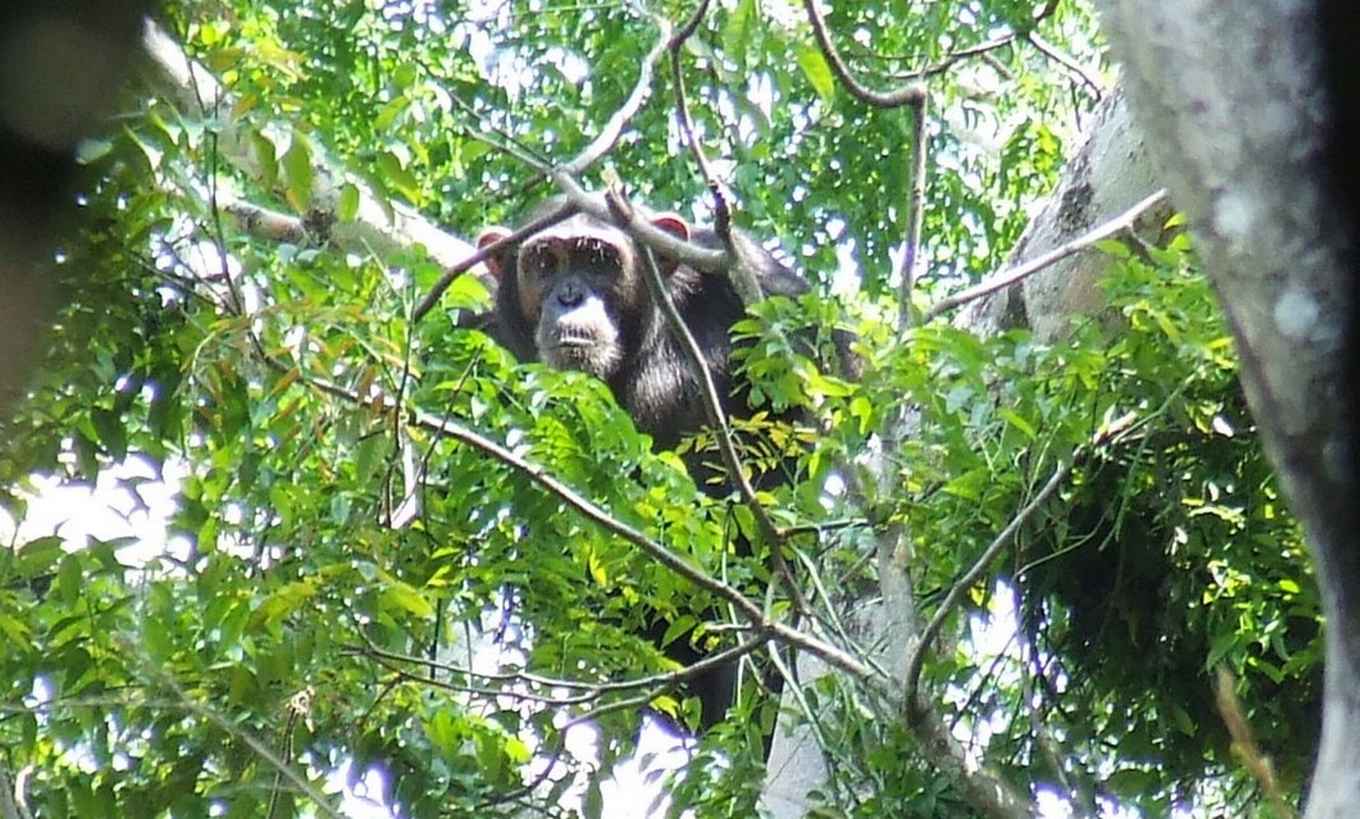Cultural override affects tool use in chimpanzees
25 May 2020

If cultural override is indeed important in chimpanzees, one can expect to see a mismatch between the availability of resources and the use of tools for exploitation of those resources. Therefore the research team compared tool-use by Eastern chimpanzees (Pan troglodytes schweinfurthii) north and south of the Uele River in the northern Democratic Republic of Congo. The Uele river appears to be a chimpanzee barrier. Given differences in encounter rates of chimpanzee tools on both sides of the Uele River, the researchers predicted that these subpopulations would differ in their likelihood of using tools to prey on two insect species despite similar availability.
Ants and termites
In surveys conducted over a 9-year period at 19 different regions in northern Democratic Republic of Congo, the researchers collected and analyzed data on chimpanzee tool-assisted exploitation of insects. To determine the availability of insect species eaten by the chimpanzees, they counted insects and their mounds on transects and recces at 12 of these sites. The observations included epigaeic Dorylus and Ponerinae ants, both preyed upon by the chimpanzees.
The scientists found little difference in the availability of these insects across the region. Despite this, tool encounter rates for epigaeic Dorylus, but not Ponerinae, ants were significantly higher in at the north of the Uele river. Furthermore, the researchers found no evidence for termite fishing anywhere, despite the availability of Macrotermes mounds throughout the region and the fact that chimpanzees at a number of other study sites use tools to harvest these termites. Instead, the chimpanzees of this region used a novel percussive technique to harvest two other types of termites, Cubitermes sp. and Thoracotermes macrothorax.
Tool analyses
Researchers Peter Roessingh and Steph Menken for the UvA Institute for Biodiversity and Ecosystem Dynamics contributed to the development of the methods to assign different types of tools to particular resources. ‘This is a key step in the analysis, because the actual use of the tools can only rarely be observed in wild populations, not habituated to the presence of humans,’ explains Roessingh.
The observed mismatch between prey availability and the specifics of predation is consistent with ‘cultural override’. Caution, however, is needed: given the different habitats studied, the impact of ecological factors cannot be excluded in this case. Dr Cleve Hicks from the University of Warsaw and first author of the study: ‘These and other similar studies on other chimpanzee populations promise to contribute to a better understanding of the evolution the human dependency upon culture.’
Publication details
Thurston C. Hicks, Hjalmar S. Kühl, Christophe Boesch, Steph B. J. Menken, John Hart, Peter Roessingh, Corneille Ewango, Roger Mundry: ‘The Relationship Between Tool Use and Prey Availability in Chimpanzees (Pan troglodytes schweinfurthii) of Northern Democratic Republic of Congo,’ in International Journal of Primatology (May 2020). https://doi.org/10.1007/s10764-020-00149-4